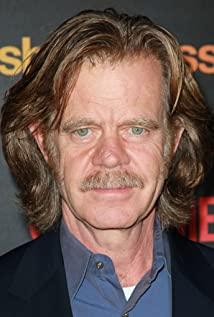For anyone who loves movies, David Lynch is a name that can't get around. This director, who has been dubbed a "ghost" by countless fans because of his direct expression of dreams and subconsciousness, actually entered his creative career by shooting experimental films. In his later works, he can also see a large number of experimental expression methods. . Lynch’s avant-garde temperament is inherited from the wave of avant-garde movies that emerged in the United States after the war, especially Maya Deren, the godmother of American avant-garde movies. She directed "The Lost in the Afternoon" in 1943 and was considered the first film with important influence. American experimental film. In the interview "Walk with Fire", Lynch recalled the situation when he first entered the American Film Institute: The script "Grandmother" and the short film "Alphabet" he submitted allowed him to pass the initial test, but what he encountered during the interview It was avant-garde artists Stan Brahage and Bruce Kona, or the little transparent Lynch felt that he might be out of play, but it didn’t take long before he received a $7,200 filming funding. He used the money (including the additional 2200) Produced the short film "Grandmother" and was the first group of filmmakers to support creation at the beginning of the establishment of AFI. Brahag and Deren are both avant-garde film artists, and they have a great friendship. Lynch was influenced to a certain extent by these avant-garde artists in the early stage of creation.
Maya Deren is not only a film director, but also a dancer and anthropologist. She was born in Kiev and her father was a psychologist, so "Afternoon Lost" has a strong psychoanalytic color. The film uses a surrealist approach to show a woman's dream in the afternoon, and her "dream in a dream" nested narrative is considered to be one of the inspirations for Lynch's "The Lost Highway". The images of flowers, keys, daggers, telephones, mirrors, etc. that frequently appear in the film all have strong symbolic meanings. David Lynch’s films also continue similar symbolic symbols, and in a deeper sense they are similar to Deren’s desire to express Some of the contents are the same. After reading this series of symbolic meanings, one can have a deeper understanding of the influence of avant-garde film artists represented by Maya Deren on Hollywood movies and how David Lynch inherited their avant-garde spirit.
Keys and Daggers: Shadow of Male Phylus
"Afternoon Lost" expresses women’s anxiety in a poetic way: the heroine who returned home wanted to take out the key to open the door, but dropped the key under the steps. Although she was picked up in the end, she still almost suffered a crisis. When the man returned home, he naturally took out the key to open the door. According to Freud’s dream interpretation theory, the key is a symbol of men, and it also means to open or lock a certain container. The female drops the key to the ground, which inspires her "castration anxiety". Her entire dream. In a jump shot at the back of the film, the key becomes a dagger, and the dagger is hidden under the pillow by the heroine's husband. The dagger is also a symbol of men, but it has a stronger Phallus central meaning than the key-a smaller key becomes a larger dagger, symbolizing Phallus's expansion-and implies murder and death.
In "Mulholland Road", the mysterious blue key represents Betty's crime and fear of killing her lover. This key comes from a male assassin, and the murder is caused by the same-sex person throwing arms at a man. The anger of losing her lover makes Betty's subconscious penis envy rise to the surface consciousness and externalize into jealousy and resentment. This resentment causes her to kill her lover and fall into a beautiful dream constructed to escape fear. This dream is Like the dream of the jazz musician Fred in "Lost Highway" after the murder, it fulfills the dreamers' unfulfilled desires in reality. The whole dream is like a huge container, and the prop to open the container is the blue key. Once the dream is opened, all the good things will disappear, leaving only the irreparable reality.
In "Inland Empire", only the mysterious man and woman at the beginning mentioned the key: The woman said: "The key is not with me." The man said: "With me, you gave it to me." The whole movie is that Lynch leads the audience in the heroine. The inner world (that is, the "inland empire") wanders, so both the audience and the character in the movie (the man looking for the "entrance") need a prop to open this huge atrium. Women do not hold the key, and the key In the hands of men, it means that the castrated women are in the object status of men, dominated by men, and are helpless and at a loss. After the heroine in the script derailed, he was stabbed to death with a screwdriver by the lover's wife, but the director stood up and cut, indicating that the play in the play has been finished. The heroine is like being reborn. She has experienced death but not really died, so she goes to search for her inner world and finally gets liberation.
Phallocentrism has long been shrouded in women's heads, which means that castrated women cannot rely on self-construction of subjectivity, and are always dominated by male subjects. Female images in traditional Hollywood movies are often subordinate to male roles, either passively waiting for salvation, or portrayed as "femme beauty". In the symbolic system of male power, women are restrained. She is the "carrier of meaning, and Non-meaningful creator". Maya Deren obviously has opposition and pessimism to the creative context dominated by Phallocentrism, so she went the other way, describing men as a source of danger: when the husband leads his wife back to the bedroom, She found the dagger hidden under the pillow and her husband's gloomy face. This is a wonderful intertextuality with Hitchcock’s "Deep Boudoir Suspicious Cloud" two years before the film came out. Men intend to murder their wives and bring the shadow of death to women. In a passive position. It is precisely because women do not have subjectivity and initiative in this patriarchal unconscious order, so Betty in "Mulholland" cannot escape the predicament, and ultimately ends in tragedy. And "Inland Empire" deconstructs Phallocentrism-the Polish girl's husband is sterile, but because she has a child, she enters the symbolic system of patriarchy, and even subverts it and regains a new life. The powerlessness of patriarchy is also manifested in the dream of "Lost Highway". Fred dreams of becoming young and attractive, which is an escape and fantasy of sexual impotence. From this perspective, the negative and powerless men that Lynch portrays are just a mockery and subversion of the center of Phallus: if Phallus is no longer powerful, then women can break free from this symbolic system. Of bondage.
Mirror and Screen: The Subjective Construction of Breaking the Male Gaze
The film satisfies the pleasure of voyeurism. Therefore, in the traditional Hollywood movies under Phallocentrism, women are the objects of gaze, carrying the desires of men, and finally become visual spectacles. Marilyn Monroe’s wide skirt and flaming red lips make her a sexy symbol today. Her roles are mostly innocent and silly, waiting for men to save, so the film focuses on the sight of men. From the camera to the montage, women’s bodies are fragmented, and their faces, backs, and thighs can appear inconsistently in the plot of the movie, carrying the eyes of men. And "Afternoon Lost" just broke the male gaze and emphasized the female "look": she was either standing in front of the window and looking out the window, or standing outside the door and looking inside, or looking vigilantly Husband's face. Her sight is free and her body is intact, because the film hardly shows the male gaze on her. The most typical shot is a close-up of one of her eyes before falling asleep: the eyelids are slowly pressed down, into a multiple dream, and the viewer of this dream is only herself, and what she sees is what the audience sees. Coincidentally, the same close-up appeared in "Mulholland Road", in which Betty was half-dreaming and half-awake seeing the nightmare-like old couple crawling in through the door, which triggered her delirium, made her hysterical and eventually died.
The video of "Inland Empire" has a strong handheld DV style. When a witch-like character comes to the hostess’s house to talk to her, the distorted lens is facing the character’s profile, leading the audience to watch the witch’s house. Talking about the world of tomorrow-by changing the direction of the camera, the audience's perspective is integrated into the protagonist's perspective, and she looks at "what will happen tomorrow" with her, thus entering the inland empire. The Polish girl in the movie (the person who really owns the inland empire) has been watching the story on TV, in fact, she is looking at her inner world. At the end, the virgin protagonist came to the theater and saw herself on the screen. These gazes all came from the same woman. The eyes of the audience followed her, wandering in the inland empire, while the men were struggling to pursue the entrance. No. Similar to "Mulholland Road", women's dreams and fantasies are their own observations, men are put aside, and their gazes are powerless.
In "Afternoon Lost", a "mirror man" appeared, dressed in black as a death god, but his face was a blank mirror. Every time the heroine sees him, she never sees her face in the mirror. It is not difficult for the audience to guess that the mirror-faced man once hid a dagger under the pillow, acting exactly like the heroine's husband, so he is the incarnation of her husband. At the end, the woman was cut by the mirror and died on the chair, indicating that she was killed by her husband. According to Lacan’s theory of the mirror stage, the baby recognizes his own image in the mirror. This behavior precedes language to construct the self-subject. In "The Lost in the Afternoon", the woman never sees herself in the mirror from beginning to end, which means that she has never constructed her self-awareness.
Movies and mirrors are both "frames". Watching movies is also a stage of mirroring. The audience and the characters in the movie contrast with each other to generate a sense of identity, which is a process of subject construction. When the female audience is watching "Afternoon Lost", they have a sense of identity with the female characters in it, which is an act of looking in the mirror. In the same way, the structure of "play in play" is similar to looking in a mirror. The Polish girl in "Inland Empire" has been watching TV, and what is shown on TV is her inner world. Through this screen, the Polish girl gazes at her inner image and rebuilds her subjectivity through her experience: she no longer needs the key, walks out of the room by herself, and reunites with her husband and son when she returns home. And the actress in her heart, the heroine who has been wandering in and out of the script, walked into the movie theater after finishing and saw herself on the screen. Women reconstruct their subject status through self-gaze, just as removing the other in the mirror to recognize their own image is a complete rebellion against male gaze.
Yu Lun: the inheritance of a pioneering spirit
At the beginning of the advent of film art, modern art was in the ascendant. Different from Bergson’s criticism of film “form is just a snapshot of a certain transition”, in 1918, Louis Aragón proposed: “Film must be a position occupied by avant-garde art first. Designers already exist in these positions. , Painters and sculptors. If you want to bring some pure things to sports and photoelectric art, film must be the object of appeal." So a group of early artists and filmmakers regarded film as pure art, and Attempting to create serious pure movies beyond popular movies was the early pioneering film movement.
Surrealist movies are a genre in the wave of avant-garde movies, starting with Sherman Dulac's "Baker and the Monk" and Luis Buñuel's "An Andalu Dog", mainly showing irrational subjective reality Or dreams. Surrealism, which was born out of Dadaism, not only made great achievements in literature and art, but also integrated with the international communist movement and exerted great influence on politics. "Revaluation of all values" means the courage to break new ground under painful reflection, and this courage followed a group of exiled artists to the United States. In the 1930s and 1940s, under the regulation of the studio system and censorship system, Hollywood films were revived. At the same time, avant-garde aftermath and underground films were also emerging.
Maya Deren inherited and developed the wave of avant-garde movies in the early twentieth century. If "An Andalu Dog" is a mocking smile given to capitalism by Buñuel (Buñuel has spared no effort to mock the bourgeoisie throughout his life), "Afternoon Lost" is Deren as a female artist. Protest against traditional Hollywood movies dominated by androcentrism-she inherited Sherman Dulac, who was also a female filmmaker, and the latter's "Smiling Mrs. Buddy" showed that she was in a bourgeois marriage The depression of women in China. In addition to shooting experimental films, Deren also made documentaries, held exhibitions, published papers, and promoted the development of American independent film. He is a well-deserved godmother of the American pioneering film movement.
David Lynch's creation began in the 1960s, when the new Hollywood was born. From learning to paint to becoming a film director seems to be an inevitable process (in his words). We can also think of his predecessors in the art world. He collaborated with Bunuel in "An Andalu Dog" and "Golden". Salvador Dali of Time, although Dali’s main work is still painting. Lynch’s paintings are also grotesquely surrealistic. He says his favorite painters are Francis Bacon and Edward Hope. Indeed, he can see his artistic style from his films. Lynch's inheritance of surrealism is not only manifested in the performance of dreams and subconscious minds in his films and the experimental nature of shooting techniques, or the in-depth portrayal of female characters discussed above, but also in his strong critical spirit in his films. In "Rubber Head", he criticized the alienation and deformity of human beings caused by industrial society in a Kafka style; in "The Elephant Man", he told a dark fairy tale, the protagonist of the story is a kind and deformed People are constantly being insulted by normal people; in "Mulholland" and "Inland Empire", he satirizes Hollywood-a crazy dream machine that brings people jealousy, desire and fear; In "Blue Velvet", he implies that the dark side of human nature is attached to everyone like a bug attached to the grass...It can be said that Lynch, who has always refused to explain himself, did not deliberately maintain a sense of mystery. The awe-inspiring movies actually express the simplest thought: be wary of the soul that loses introspection, and strive to maintain the integrity of human nature, in order to avoid falling into the pathological self-destruction. His most difficult road film "Mr. Streit's Story" can be described as returning to the basics. There is no murder and dreams, no talking to himself, no hysteria, only kind and determined characters and magnificent scenery along the way, because there is only this character. He has no distracting thoughts, so no darkness can drag him into madness.
So "avant-garde" is not just a form, just as a movie is not just a pure glimpse of light. Pioneer means revolutionary spirit. From early pioneer artists to Maya Deren to David Lynch, the seemingly alternative and niche creators have always followed a sober path. Form bears the responsibility of meaning. Avant-garde movies seem to be messy fragments, but if they are broken and meaningless, why should they break it?
View more about Inland Empire reviews











